Nutritional components in radishes
According to physician Bui Dac Sang of the Hanoi Traditional Medicine Association, radish is a highly nutritious food, often compared to "white ginseng." 100g of radish contains 20 calories of energy; 0.5g of sugar; 0.2g of fat; 0.045mg of thiamine; 0.072mg of riboflavin; 0.11mg of niacin; 0.274mg of pantothenic acid; 0.18mg of vitamin B6; 0.8mg of iron; and 0.37mg of manganese.
Radishes have anti-cancer properties and help prevent heart attacks and other heart diseases. This food is good for the immune system, eyesight, bones, and skin. Eating radishes helps lower high cholesterol levels and prevents osteoporosis, rheumatoid arthritis, and cataracts.
The nutritional composition of white radish contains substances that help the body fight cancer. In particular, the enzymes can eliminate toxins that cause cancer.
The presence of glucosinolates in beets helps prevent cancer. These are natural plant compounds that break down into two substances during digestion: indole and isothiocyanate. These two substances act as powerful agents attacking tumor cells and reducing cancer growth.
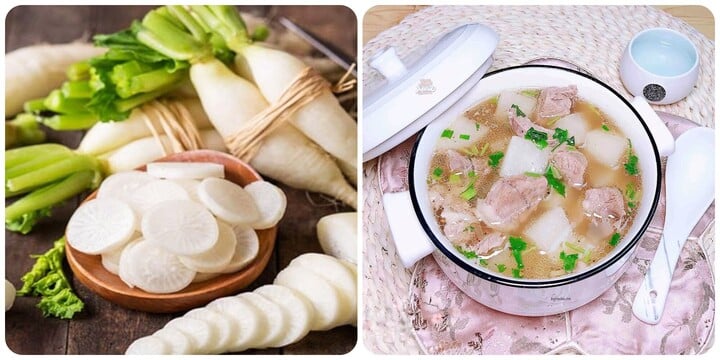
Radishes are a familiar vegetable in winter.
Who should not eat white radish?
Although white radish is good for health, not everyone can eat it. According to traditional medicine practitioner Bui Dac Sang, radish should be consumed in moderation; eating too much can disrupt digestion and cause stomach pain.
Especially for pregnant women, eating too many radishes can increase frequent urination, causing discomfort due to their diuretic properties. Pregnant women should only eat cooked radishes 1-2 times a week. Absolutely do not eat raw radishes in salads or pickled radishes as they are unsafe.
Furthermore, according to herbalist Bui Dac Sang, there are some foods that should not be combined with radishes to avoid harming your health:
Pears, apples, and grapes: The cetan copper content in these fruits will react with cyanogenic acid from beets, causing symptoms of goiter and severe hypothyroidism if consumed together regularly.
Ginseng: White radish is considered cooling, while ginseng is considered warming. Combining these two foods will cause their nutrients to cancel each other out. Not only with radish, but after consuming ginseng, avoid seafood and tea.
Carrots: While beets are rich in vitamin C, carrots contain enzymes that break down this vitamin; therefore, consuming them together will destroy the amount of vitamin C entering the body.
Black fungus: Combining black fungus with white radish can cause complicated reactions, leading to allergies and dermatitis.
Source: https://vtcnews.vn/nhung-nguoi-nao-khong-nen-an-cu-cai-ar913692.html












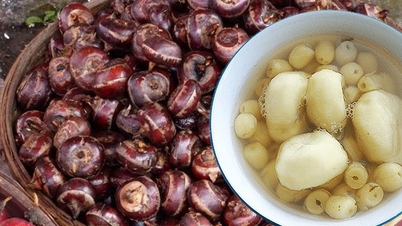

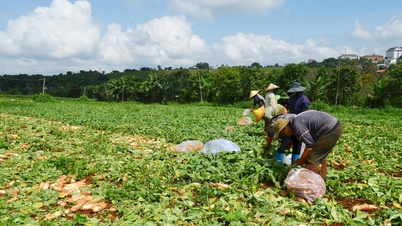

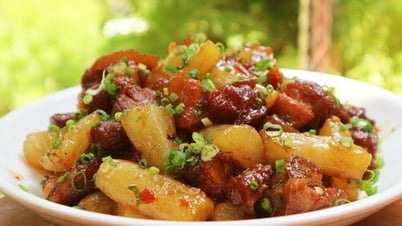
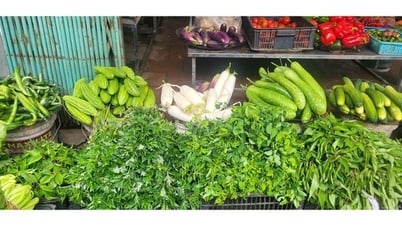


























































































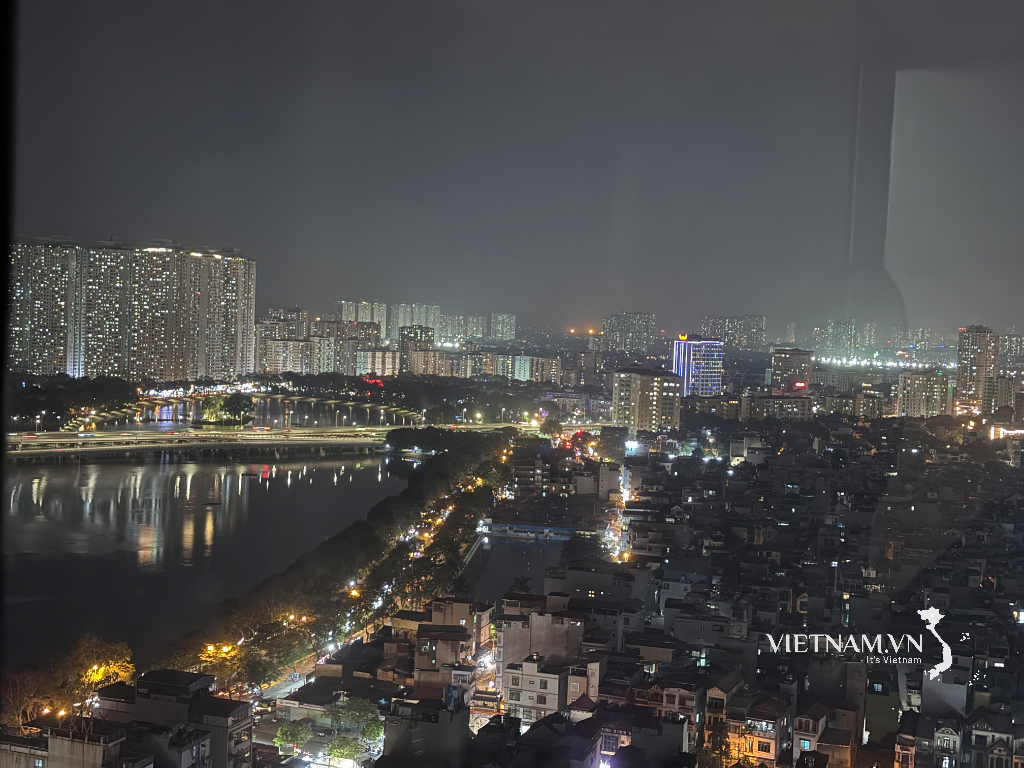

Comment (0)